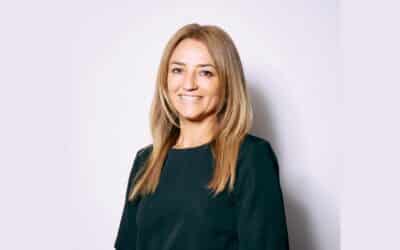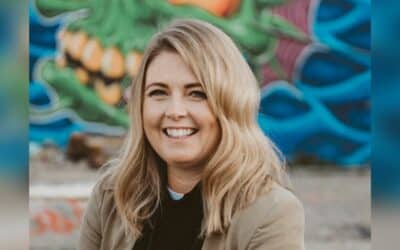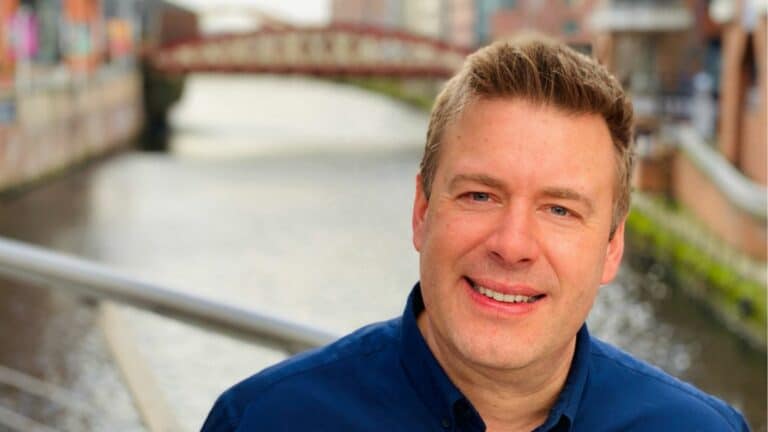Kyle Evans is director of Voiceworks, a Manchester-based collective of audio experts, backed by Communicorp UK.
With an impressive broadcast career, Evans started out in BBC Local Radio and progressed onto Guardian News Media, before joining Communicorp in 2014.
Working on programmes such as Doctor Who: 60 Years of Friends and Foes, Evans shares all the lessons he’s learnt.
Which single daily habit or practice could you not do without?
The best practice that I employ in my life is to eat the frog! It’s a productivity method that serves me well. For me, making sure that I tackle the most important or most challenging work on my to-do list first is crucial. This doesn’t only apply to my work, it’s something I apply to my personal life too. I’ve learned that getting these out of the way first helps to clear my day, and my headspace. It helps me to be more productive in the long run.
What’s been your luckiest break?
I think my luckiest break must be my voluntary work in BBC Local Radio, which started my career. I have the now-retired Chief Engineer Simon Penfold to thank for this – he spotted my passion for radio and helped to develop my volunteering into a paid position. It also helped that I was so passionate about radio.
My first role was focused on tape-reclaiming. This is the process of magnetically blanking hundreds of reels of recording tape so that reporters and presenters can reuse them. I found the workings of the station fascinating and kept my eyes and ears wide open. It wasn’t long before I made my way into the studios and started my producing career.
It is a pleasure to lead amazing talent and production teams to help create content which engages with audiences whether it is for brands or the BBC.
What’s your best failure?
My best failure comes from a DIY-related incident which taught me a valuable lesson. An elderly neighbour asked me to remove some copper pipes so that they could redecorate. The neighbour insisted that the copper pipes were disused, but the sudden flooding of water that followed that first cut suggested otherwise.
Alongside giving me a massive clean-up job, the exploding pipes really hammered home to me the importance of double checking everything that I’m working on. It’s something I’ll often think about when I’m starting on a project. When I become confident in something – whether that be a new audio project or a house renovation – it’s easy to feel complacent. It’s important that I still take the time to think about every possible outcome. Thinking about what could go wrong, and how to stop that happening, helps me to continue working to the best of my ability, and overcome challenges as they arrive.
The incident also taught me to steer clear of plumbing.
What is the best investment you’ve ever made, either financial or time?
I’ve always been keen to invest time in providing opportunities and coaching to those with potential and a passion for the audio industry. I want to make sure that other people have the guidance that I had when I started. When I think about how I gained the expertise in my career, and how I got to the role I now hold at Voiceworks, it’s clear that the people I’ve worked with have been invaluable. I’ll forever be grateful for the colleagues and mentors who have challenged and continue to challenge my thinking.
Throughout my career, I’ve enjoyed working with many talented, experienced people. I don’t think I’d be producing the work that I do today without them sharing their knowledge, expertise, and support.
Which podcast or book would you recommend others to read and why?
I’m a relatively new fan of Diary of a CEO with Steven Bartlett, but I’m hooked. I think the conversations are entertaining and wonderfully insightful. They’re also incredibly honest, with genuine take-aways you can implement in your life straight away.
When producing audio content, the question I always ask is: “What is the benefit to the listener?” Diary of a CEO, in my opinion, nails this every time. Steven Bartlett’s use of teaser videos on TikTok is equally admirable, and unsurprising given his experience in social media marketing. Discoverability in the podcast space can be a challenging task to navigate, and this is a great demonstration of best practice. It’s a real example of how podcasting can be used to draw in highly engaged and loyal audiences of fans.
What one piece of advice would you give your 21-year-old self?
If I had the chance, I’d tell my 21-year-old self to take that year to go travelling, as you’ll be too busy later in your career!
Who or what has had the single biggest influence on your working life?
My parents have been a huge influence on my working life. I was brought up with the attitude that anything is possible if I put myself out there and have the confidence to go for opportunities. This is something I’ve taken with me into every role, and I think it’s been a fundamental part of what has allowed me to reach the position I’m in now.
Both of my parents were hard working and entrepreneurial. They owned multiple businesses while working full time and looking after me. I think their background of belief and passion has rubbed off on me and it’s something I try to encapsulate in all the work that I do.
Tell us something about you that would surprise people.
I’m an ambassador for the David Gest Foundation, of which Dionne Warwick is the Patron. David was a hugely successful music and TV producer, a highlight of which was producing Michael Jackson: 30th Anniversary Celebration. This became one of the highest-rated musical specials in television history. Our foundation uses his royalties to help under privileged children in the UK and the US through the power of music, which I think is an amazing cause and something I’m proud to be a part of.
If there was one thing you could change about your career, what would it be and why?
If I could, I’d tell myself to enjoy each moment more. I’ve always been determined to have a successful career, which brings with it a certain level of self-imposed pressure. This is useful to an extent – it helps to push me towards the next level, but I think it’s also important to enjoy the ‘now’ too.
I’m becoming better at appreciating where I’m currently at, but it’s something I’ve had to work on. I’ve found that taking a step back to reflect on recent work or achievements can help me to stay motivated and see clearly what steps I want to take next to progress.
What does success look like to you?
For me, success looks like continuing to grow my career in the audio industry and work on exciting projects such as the content we have produced for big brands and the BBC. NHS and Travis Perkins are a couple of examples of these recently, plus we have made programmes for the BBC celebrating Doctor Who’s 60th anniversary and reflecting the damaged caused by storms in Florida for the BBC World Service.
In my personal life, success looks like enjoying quality time with my partner, family, and friends, as well as Ben the cat.














